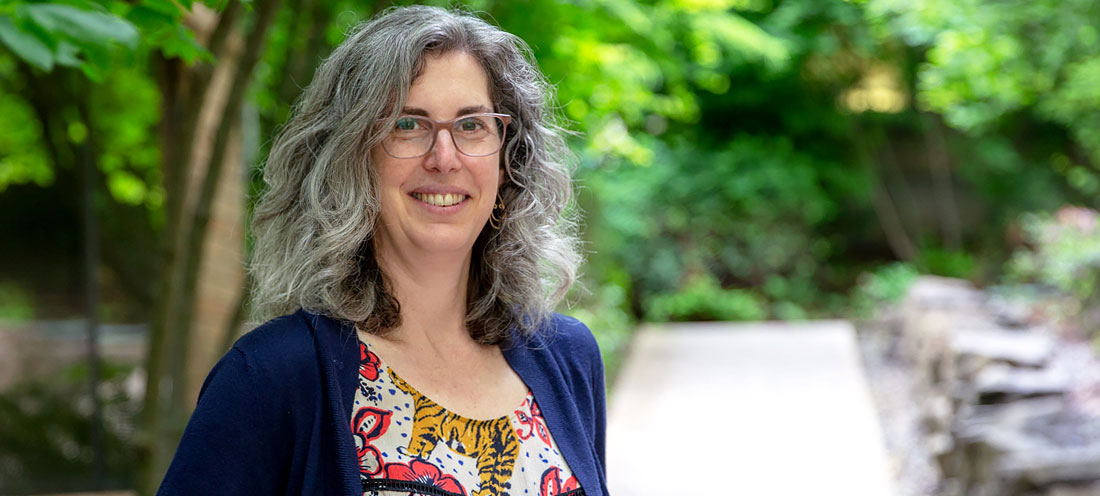Multiple sclerosis is an unpredictable disease. The cause is unknown, and people who suffer experience a range of symptoms that come and go over time.
Although scientists are making progress on more affordable, effective treatments, the sense of uncertainty when dealing with this disease is hard to ignore. So, when Rebecca Spain, MD, MSPH, received the results of her clinical study, she was ecstatic. Her results showed that lipoic acid could reduce brain atrophy in patients with secondary progressive MS.
“It was really stunning and it took us a while to believe it,” Spain said. “It took a while just to get comfortable with the idea that lipoic acid could work.”
Over the course of five years, Spain studied the effectiveness of lipoic acid for treating brain atrophy in people with secondary progressive MS. The disease affects an individual’s central nervous system, and can disrupt the flow of information within the brain.
In 51 patients, lipoic acid reduced brain atrophy by 68 percent, showing that lipoic acid has the potential to make the brain shrink at a normal rate again.
While everyone’s brain shrinks naturally over time, secondary progressive MS makes it shrink faster. This can cause memory loss, difficulty learning, problems multi-tasking and overall fatigue.
While there are variables to consider in her work, like genetic and environmental influences that contribute to MS, Spain’s results were groundbreaking. In 51 patients, lipoic acid reduced brain atrophy by 68 percent, showing that lipoic acid has the potential to make the brain shrink at a normal rate again. Not only that, it would offer patients with secondary progressive MS a low-cost, over-the-counter medicine unlike other MS medications currently on the market.
Help OHSU create hope for people living with neurodegenerative diseases.
A period of discovery
The sense of wonder in science has always fascinated Spain. She recalls discovering her love of science in seventh grade as a willing volunteer to dissect others’ worms in class. As she got older, she wanted to pursue science-related opportunities.
But Spain wasn’t quite sure what realm of science she wanted to take on. So, she took a year off during college. She trudged through forests to collect lichens in the Willamette Valley. She explored the public policy route to fight climate change. And ultimately decided that pursuing a PhD wasn’t for her.
Instead, she chose medicine.
“Neurology is the command center of the body. It’s how the body communicates with itself and with the external world. It involves all the senses, thinking and possibly your soul.”
Spain earned her medical degree from Case Western University School of Medicine in her home state of Ohio. She then went on to pursue a fellowship in neuroimmunology from Thomas Jefferson University in Philadelphia. She gravitated toward neuroscience because it fascinated her – if she had to study something for the rest of her life, this was it.
“Neurology is the command center of the body,” she said. “It’s how the body communicates with itself and with the external world. It involves all the senses, thinking and possibly your soul.”
Spain finished residency with another decision: figuring out her next steps. An informational interview at OHSU turned into a job offer, and Spain came on board to launch her promising career in research.
Discovery leads to more discovery
Spain’s study of lipoic acid builds upon more than a decade of prior research. One of the forerunners in this research area was none other than Dennis Bourdette, MD, the director of the OHSU Multiple Sclerosis Center.
Bourdette has extensive experience in developing new therapeutic approaches for MS, and studied how antioxidants, like lipoic acid, can be used in MS treatment. Vijayshree Yadav, MD, used Bourdette’s research to conduct her own investigations, with a focus on the dosage and safety of using lipoic acid in animal models.
Spain now leads the lipoic acid research program, using Bourdette and Yadav’s work as the foundation to her research. Their work paved the road for Spain to run a pilot clinical trial of lipoic acid, one of few trials in the country open to people with secondary progressive MS. Her astounding results have poised her to conduct the next phase of investigation to confirm the results in a large, multi-site trial.
“Philanthropy continues to be the extra nudge that keeps us going.”
Rebecca Spain, MD, MSPH
In a related series of clinical trials, Spain will look at whether she can increase the tolerance for lipoic acid in MS patients and improve absorption. She’ll also discover whether the results are significant enough to introduce the treatment widely to patients with MS.
Spain recognizes that she couldn’t have conducted this life-altering research without the help of philanthropy. Not only has philanthropy fueled the foundational research of Bourdette and Yadav over the years, but her own research has been supported by a generous gift from Anne Foster, an MS patient at OHSU.
Anne Foster won’t let secondary progressive multiple sclerosis slow her down.
“Philanthropy has been absolutely crucial in this lipoic acid line of research,” Spain said. “It’s helped me to hire my staff, secure contracts with different sites and set up the database. We would be over a year behind if not for philanthropy letting me get a jump start on planning and running the study. Philanthropy continues to be the extra nudge that keeps us going.”
The second phase of the clinical trial, currently in the recruiting phase, will study 118 people across the country, with results expected in 2022.

